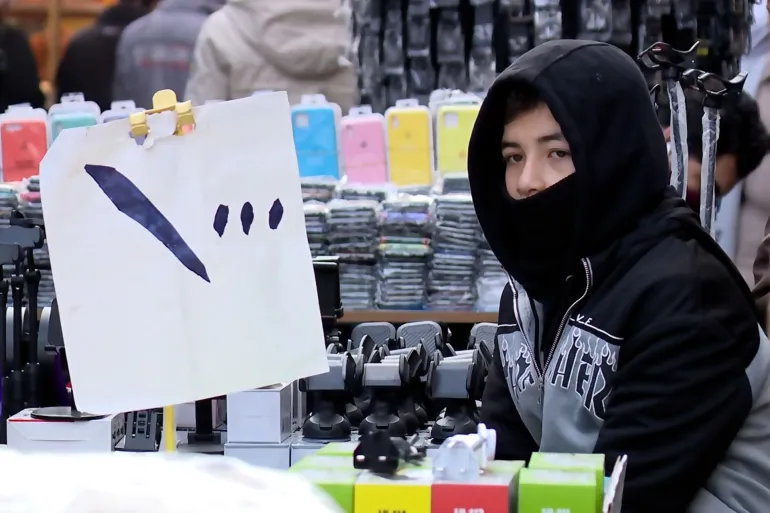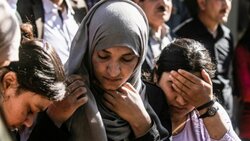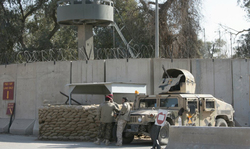Iraq ranks fourth in the Arab world in Child Laboring

Shafaq News/ Iraq faces a major challenge with child labor, echoing a global trend that disproportionately impacts low-income nations.
Fadel Al-Ghraoui, the Head of the Strategic Center for Human Rights in Iraq, revealed on Monday that over 200 million children worldwide, aged 6 to 17, are part of the labor market.
According to Al-Ghraoui's statement, the United Nations reports show that child labor is most prevalent in Africa, with approximately 72 million working children, followed by Asia and the Pacific, with 62 million child workers.
The Americas have 11 million child workers, Europe and Central Asia each have 4%, and the Arab world accounts for 3%.
The statistics from the UN reveal that 84 million children, constituting 56% of all working children, reside in low-income countries.
Concerning Iraq's position in child laboring, Al-Ghraoui pointed out that the country ranks fourth after Yemen, Sudan, and Egypt.
"In Sudan, child labor rates stand at 12.6% among 4 to 15-year-olds, escalating to 19.2% among those aged 15 to 17. Yemen exhibits percentages of 13.6% and 34.8% for the corresponding age groups. Comparable patterns emerge in Egypt and Iraq, with rates of 1.2% and 13.5% across various age brackets."
In Iraq, approximately 4.9% of children in younger age groups, totaling 700 million aged 7 to 17, are engaged in labor, primarily in agriculture and services, according to Al-Ghraoui.
"Iraq's high child labor rates to economic challenges like reduced family income, high unemployment and poverty rates, conflicts, displacement, increased domestic violence against children, and insufficient legal frameworks for child protection." He attributed.
Al-Ghraoui urged swift action from the government and parliament, advocating for the enactment of child protection laws, amendments to labor regulations, and stricter penalties for employing children in factories.
"Creating economic opportunities for children, establishing a Generations Fund, and designating June 12th as the National Day Against Child Labour
would contribute to addressing Iraq's child labor challenges and protecting children's rights." He said.
According to the United Nations, around 218 million children work, many full-time. They do not attend school and have little or no time to play. Many do not receive proper nutrition or care. They are denied the chance to be children. More than half of them are exposed to the worst forms of child labor, such as work in hazardous environments, slavery, other forms of forced labor, illicit activities, including drug trafficking and prostitution, as well as involvement in armed conflict.
Notably, the United Nations explains that not all work done by children should be classified as child labor that is to be targeted for elimination.
"Children's or adolescents' participation in work that does not affect their health and personal development or interfere with their schooling is generally regarded as something positive. This includes helping their parents around the home, assisting in a family business, or earning pocket money outside school hours and during school holidays. These kinds of activities contribute to children's development and the welfare of their families; they provide them with skills and experience and help to prepare them to be productive members of society during their adult life." The UN said.
Child labor is work carried out to the detriment and endangerment of a child in violation of international law and national legislation. It either deprives children of schooling or requires them to assume the dual burden of schooling and work. Child labor to be eliminated is a subset of children in employment. It includes all "unconditional" worst forms of child labor, such as slavery or practices similar to slavery, the use of a child for prostitution, or for illicit activities.
In addition, work done by children under the minimum legal age for that type of work is defined by national legislation under international standards.
The worst forms of child labor involve children being enslaved, separated from their families, exposed to serious hazards and illnesses, and/or left to fend for themselves on the streets of large cities – often at a very early age. Whether or not particular forms of "work" can be called "child labor" depends on the child's age, the type and hours of work performed, the conditions under which it is performed, and the objectives pursued by individual countries. The answer varies from country to country and among sectors within countries.





